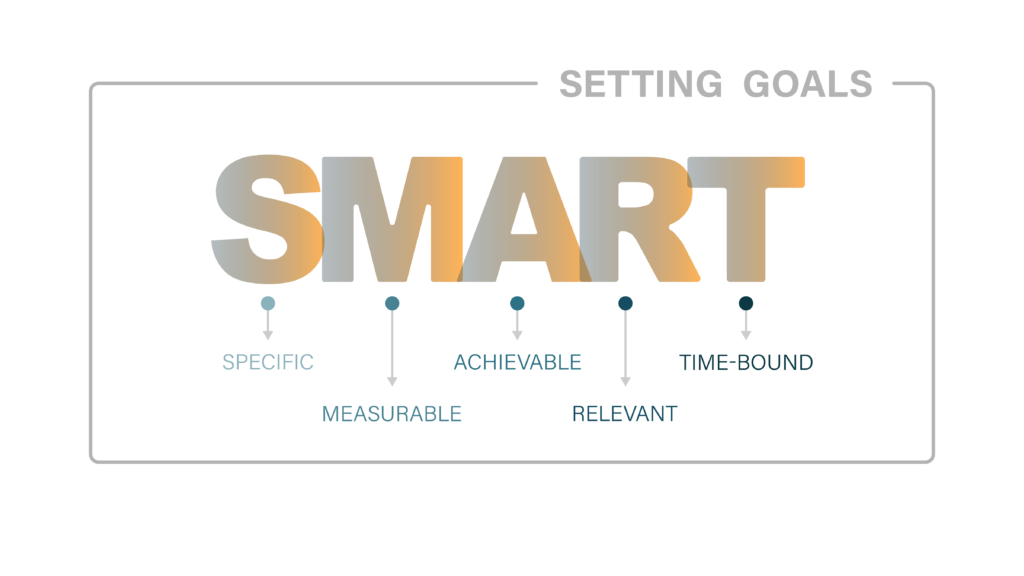- Setting Goals, What Everyone Should Know Now
- Types Of Goals We Set
- Goals we Set To Gain The Success We Want NOW
Posts In The Series
- The Types Of Goals We Set
- Goals We Set To Gain The Success We Want
- Setting Goals, What Everyone Should Know
Goal setting is something successful people do. They set them for various reasons; for life’s small decisions and for the big ones. However, the flip side is, most of us don’t make a conscious decision to set a goal, and when we want to accomplish something, we usually throw ourselves aimlessly at what we are trying to accomplish and hope we are successful.
When we are not…
When not victorious, or even if some pull off that haphazard attempt, that’s when the average person acknowledges it involved a goal. If successful, there is exaltation, but if failure is the result, then there is self-recrimination. More times than not, we don’t accomplish what we want, and we also don’t admit to failure and learn from it; mainly because we are too busy berating ourselves.
The right way…
For success to happen, it matters if we invest time thinking about what we want to accomplish, how we want to do it, and make a plan to forge forward. It sounds simple enough. Unfortunately, that three-step process may as well be archaic, because most of us barely use it. If we only apply this process, more often than not, we would achieve success.
The Origins and Concept of the Goals we Set
Goal creation isn’t a new concept, it’s just that few of us practice it. In fact, early studies support the importance of creating goals. It was Kurt Lewin, a social psychologist, study on aspirations, and Dr. Edward Locke’s study on goal setting five decades ago that shows a preliminary relationship between the type of goals we set and how we perform when attempting to reach a goal. These two pioneers understood the importance of goal setting decades ago, and their findings are just as relevant today.
What goal setting means
Even with the passing decades, many still don’t know what setting a goal means, or understand its value and execution. So let’s start with a definition and concepts to understand the benefit of setting goals. Basically, a goal is the aim of an action or task that a person consciously desire to achieve or get (Locke & Latham, 2002). The basis for setting an aim is the conscious effort we make to actualize an aim. That conscious effort involves our motivations and purpose.
Many studies detail the relationship between the goals we set and contributing factors, such as desire or intentions. Other contributing factors are below.
-
Motivation or motives create the desire to set and meeting a goal.
-
We tie conscious goals to the actions we take.
-
When we focus on a goal, we lose interest in unrelated events.
-
We seek effective methods for accomplishing a goal.
-
Alternatively, setting a goal challenges us and gives us a sense of purpose.
4 Factors And A Golden Rule For Effective Goal Creation
It’s not enough to say we are going to set a goal, and it’s done. The process is just as relevant as the goal and the outcome. The process or the base of the goals we set forms before adapting the golden rule. These factors are the foundation on which we should set all goals. If our goals are to be as effective as we intend them to be, then these attributes are all-important.
The four factors
- Focus – Doing what’s necessary to achieve a goal
- Exertion – The effort you extend towards achieving a goal
- Persistence – The time you spend on reaching a goal
- Strategy – The different ways of achieving a goal
The Golden Rule
Once you’ve known what your purpose is and can focus on that purpose, only then are you ready to exert the effort to be persistent and create a strategy. Now it’s time to follow the golden rule. The premise behind the golden rule is to set SMART goals. If you want to succeed at reaching a goal, taking specific steps towards that goal will lead to that success.
You may already know what SMART goals are, a lot of us do. However, if we don’t set goals, or achieve what we want to accomplish, we certainly don’t adapt to a rule that requires the very factors mention above. SMART goals create clarity when trying to achieve an aspiration. Here are the principles and meaning of the acronym.
Specific
You don’t achieve vague goals. In order to achieve a goal, the goal must be unmistakable in its intention. Don’t just say you want to make $1000 online. Instead, outline how you plan to make the thousand dollars.
Measurable
Now that you know specifically how you want to make a thousand dollars, how will you know when and if you’ve achieved the goal? To measure a goal means outlining a process. You will make $500 increasing Facebook promotions? $500 selling a new e-book on amazon? A measurable goal is a goal that’s achievable. If for no other reason than seeing progress and being motivated because of it.
Attainable
Let’s say you decide to make the second half of that $1000 selling an e-book, but you don’t have an e-book, or the book is still being written or edited. Is it an attainable goal that you will make $500 on a book that’s not even on Amazon yet? Your goal must be attainable if you plan to achieve it. An unattainable goal will demolish your self-confidence and any fervor you have for reaching this and future goals.
Relevant
We tie relevant goals to values. It wouldn’t work if you hate to gamble, yet you decide to make a part or all of your $1000 visiting a casino. Relevant goals should be in line with your life goals, your career goals, and will be an accomplishment you are proud of.
Time-Bound
You know you want to make a $1000; you know how you want to make the money, now you need a timeframe. An achievable goal has a beginning and an end. A deadline shows you are eager and willing to do the work to make it happen. Another reward: Celebrating the achievement.
Motivation – Another Component For Effective Goal Setting
Factors and golden rules aside, nothing happens without motivation. One requirement for setting effective goals is motive. This happens when the goals we set are intrinsically important and have value (think of relevant in the golden rule) If a goal such as the gambling analogy mention above, is of little interest, and have no value, then you will be apathetic to finishing the goal. There are conditions you can use to determine the motivational factor of a goal. Five of them are below.
Clarity
When a goal is vague, it has limited incentives. In retrospect, when a goal is clear and concise, there is less chance of confusion. With transparency, expectation is distinct and the end-result is attainable.
Challenge
Goal that require effort usually provide more motivation. In addition, a challenging goal tied to a reward boost enthusiasm and determination.
Commitment
We commit to a goal when it’s a goal we aspire to achieve. When we commit, we acknowledge the importance of the goal from the onset.
Feedback
Feedback is a way to maintain expectations and control the complexity of a goal. An assessment isn’t just for managing expectations; it’s also used to provide targeted observation. With targeted observation, you can determine how well the goal is progressing.
Task Complexity
To further motivate, it’s important to consider the complexity of a goal. Consider what’s involved with completing a goal. If a goal is intricate, then the time-bound factor is relevant. If a goal cannot fall within the time bound constraint, then you should consider if it’s an attainable goal. The end-result of a goal is success and it would frustrate to set a goal that’s difficult to reach even if you follow the golden rules.
Benefits and Limitations of the Goals we Set
Benefits
Many studies show that goal setting inspires individuals to do their best. It is an important part of self-management and even self-care. The goals we set challenges us to not just do our best, but to have an unambiguous plan outlining how to achieve insurmountable goals.
Limitation
It’s not a good idea to set too many goals at once. The end-result would bewilder and cause a loss of focus. If you must set over one goal at a time, the best option is to find a balance that will allot equal time for each goal.
Another limitation to consider is what’s known as tunnel vision. It would be so much easier to concentrate on a goal and achieving it if we ignore all the other elements of everyday life, which could negatively affect the outcome of the goal.














[…] your aspirations and set achievable goals. Break larger goals into smaller, actionable steps. By doing so, they are more attainable and […]
[…] Related: Goal Setting What Everyone Should Know […]